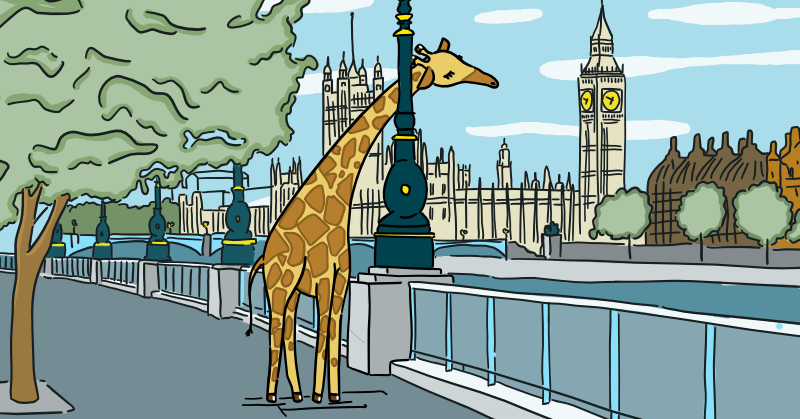Bolton, Noses, Crime, Cheek, Dress
Bring On Armageddon
Graeme Wood | Atlantic | 6th March 2019
Beautifully crafted profile of John Bolton, “the most important figure in American national security”. Bolton was appointed National Security Adviser last year after being passed over twice for the job because President Trump could not stand his “droopy soup-strainer” moustache. Rather than shave his upper lip, Bolton habituated Trump to the moustache by appearing frequently on Fox News. It says much about the character of the Trump administration that Bolton now counts as a safe pair of hands and something of a moderate. His arrival in the White House has “disrupted a delicate balance of idiocy” (6,700 words)
The Man With An Elephant’s Nose
Amie Bolissian McRae | Early Modern Medicine | 6th March 2019
Lovely short note about 16C doctors who found ways to “cure” the imaginary symptoms of delusional patients. Cases here include a man who believed himself to have a nose like an elephant’s trunk; another who thought his buttocks were made of glass; and a third who believed his stomach was filled with squirming frogs. This last was “cured” with a strong laxative and some strategically placed frogs. Upon inspection, he believed that he had disposed of his problem by natural means (725 words)
Guilty When Proven Innocent
Matthew Scott | Barrister Blogger | 6th February 2019
A British man is convicted of rape on the evidence of two eye-witnesses who claim they saw him near the scene of the crime. He serves 17 years in jail before DNA analysis argues for his innocence. His conviction is quashed. But when he seeks compensation for wrongful imprisonment, he discovers a little-known and scarcely credible provision unique to British law. To obtain compensation for wrongful imprisonment, you must “prove beyond reasonable doubt” that you did not commit the crime in question. The fact that your conviction has been quashed by a court is not in itself enough (3,670 words)
Act Of Rebellion
Brian Phillips | Ringer | 5th March 2019
Pure pleasure. Over-the-top profile of Australian tennis player Nick Kyrgios, who “seems to have been designed in a laboratory for the sole purpose of driving people crazy”. John McEnroe calls Kyrgios the most talented young player to have emerged in the past ten years; but even McEnroe, once the archetypal enfant terrible, finds Kyrgios’s boorishness intolerable. As do spectators. At the recent Mexican Open, Kyrgios was “booed so furiously that you started to worry oxygen-starved fans were going to black out in the aisles”. It was like “Beatlemania as planned by the angel of death” (1,600 words)
Dress Codes
Amber Thomas et al | Pudding | 15th February 2019
Lessons learned from collating the “dress codes” of 481 public high schools across America. First finding is that dress codes rarely discuss clothes; they are too busy specifying parts of the body which must not be seen. The provisions directed at girls in particular can verge on the fetishistic. “I was expecting something like genitals to be number one, but only six schools explicitly ban them. Midriffs, on the other hand — the front part of your body between your chest and your waist — are banned in 71% of schools, making it the most banned body part by a long shot. Which raises the question: why?” (18,100 words)
Video: Does Time Exist? Ted-Ed primer asks (in that very polite, Ted-Ed way) what, if anything, we are measuring when we say we are measuring time (5m 15s)
Audio: What Happened To Lindsey Graham? | The Daily. Mark Leibovich asks why Senator Graham switched from denouncing to exalting President Trump. The key factor was John McCain’s death (27m 45s)
Afterthought:
“When you have seen the Hitlerjugend in action you become very wary of team spirit”
— Edsger Dijkstra
